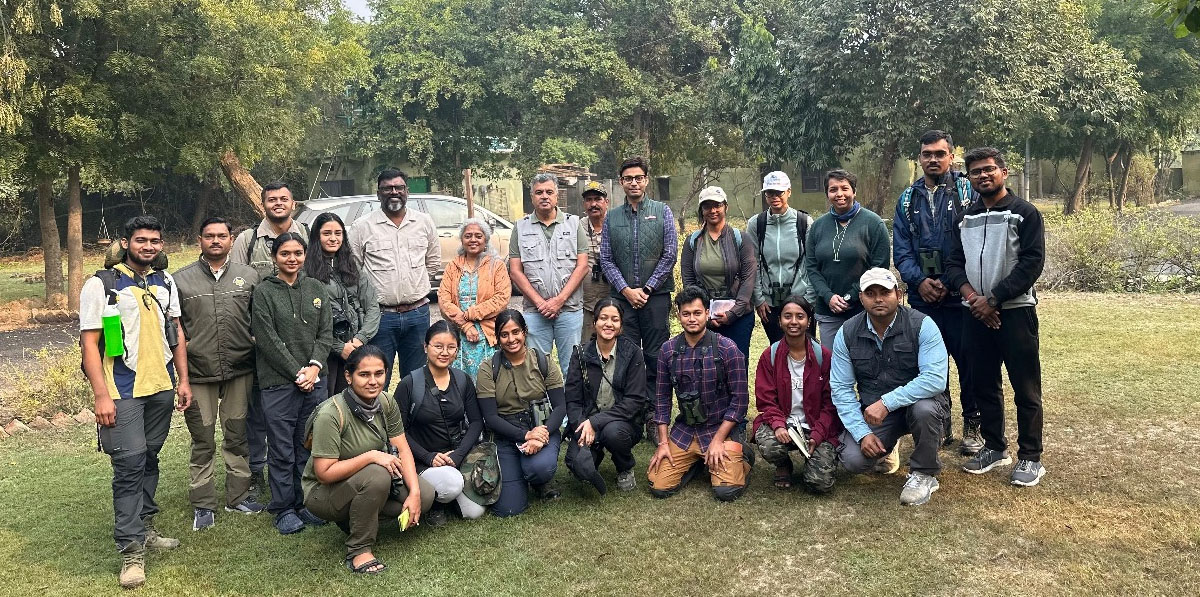The Wildlife Institute of India (WII) offers several short-term certificate and orientation programs to promote awareness and build capacity among a diverse audience. One of the most popular outreach and training initiatives is the "Certificate Course for Wildlife Enthusiasts" or similar variants designed for laypersons, students, professionals, and nature lovers who wish to deepen their understanding of Indian wildlife and conservation efforts.

Overview of the Wildlife Enthusiasts Course
This course is typically organized by WII’s Environmental Education and Awareness Programme as part of its mandate to reach out to the general public and build a conservation ethic among citizens. The course is non-technical and designed for individuals with an interest in nature and wildlife but not necessarily with a professional background in ecology or conservation.
Objectives
- To introduce participants to the fundamentals of wildlife biology, ecology, and conservation.
- To familiarize them with the diversity of Indian wildlife, ecosystems, and key conservation issues.
- To create awareness about the role of citizens in wildlife protection and sustainable coexistence.
- To provide an immersive experience in wildlife habitats and research settings.
Target Audience
- Wildlife enthusiasts and nature lovers from all walks of life.
- School and college students.
- Teachers and educators interested in environmental awareness.
- Eco-tourism guides and photographers.
- Individuals aspiring to work or volunteer in the conservation sector.
Course Content (Indicative)
The content typically blends classroom lectures with hands-on activities and field visits. Modules may include:
- Introduction to Wildlife and Ecology
- Basic concepts of ecology, biodiversity, and ecosystem functions.
- Understanding food chains, predator-prey dynamics, and keystone species.
- Indian Wildlife and Protected Area Network
- Overview of flagship species (tiger, elephant, rhino, snow leopard, etc.).
- Introduction to India’s National Parks, Wildlife Sanctuaries, and Biosphere Reserves.
- Conservation Challenges in India
- Human-wildlife conflict, habitat loss, poaching, climate change.
- Government policies and legal frameworks such as the Wildlife Protection Act.
- Wildlife Research and Monitoring Techniques
- Introduction to camera trapping, transects, telemetry, and habitat monitoring.
- Basics of GIS and remote sensing for wildlife applications.
- Field Excursions and Practical Exposure
- Visits to nearby forested areas, protected areas, or WII field sites.
- Demonstrations of field equipment, biodiversity recording, and eco-trails.
- Citizen Science and Role of the Public
- How enthusiasts can contribute to biodiversity documentation (eBird, iNaturalist, etc.).
- Volunteer programs and public engagement in conservation.
Duration and Format
Duration : Generally ranges from 5 to 7 days.
Mode : Conducted on-campus at WII, Dehradun, with both indoor and outdoor sessions.
Format : Combination of lectures, audio-visual presentations, nature walks, and group discussions.
Resource Persons
- Faculty members and scientists from WII.
- Guest experts from forest departments, NGOs, and academia.
- Wildlife photographers, filmmakers, and naturalists.
Certification
Participants receive a Certificate of Participation from the Wildlife Institute of India upon successful completion of the course.
Application Process and Fees
- The course is announced periodically on the official WII website and social media platforms.
- Registration is on a first-come-first-served basis, with limited seats (usually 30–50 participants).
- A nominal course fee is charged to cover lodging, boarding, field visits, and materials.
Significance
This course serves as a bridge between science and society, helping build an informed community of wildlife supporters. It aligns with WII’s broader vision to instill environmental stewardship and enhance public understanding of conservation imperatives.